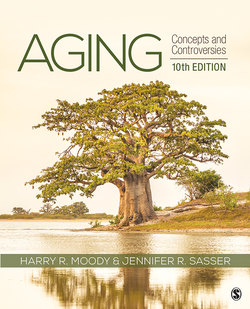Читать книгу Aging - Harry R. Moody - Страница 17
На сайте Литреса книга снята с продажи.
The Life Course and Aging
ОглавлениеThe study of aging as a historical phenomenon reveals a variety of views about the stages of life, about when old age begins, and about what it involves (Troyansky, 2015). When we read about aging in the Bible or in works by such writers as Shakespeare and Cicero, we might imagine that “old age” is a fixed stage of life, always part of the natural pattern of things, such as birth and death. But now, in the first part of the 21st century, it has become clear that human aging is far more ambiguous than might have been imagined in earlier epochs. We can most fruitfully understand old age not as a separate period of life, but as part of the total human life course from birth to death.
Increasingly, aging is seen from this life course perspective (Bernardia, Huininkb, & Settersten, 2019; Dannefer & Phillipson, 2010; Markson & Hollis-Sawyer, 2000; Mortimer & Shanahan, 2003). In other words, we look at old age as one phase of the entire course of life and the result of influences that came from earlier periods. We distinguish here between the span of a lifetime, which is the total number of years we live, and the course of life, which refers to the meaningful patterns seen in the passing of time. Gerontology is enriched and broadened by the life course perspective. Instead of merely describing the limited characteristics of old age, which are tied primarily to biophysical changes, we shift the framework to include all phases of life, from childhood, adolescence, and adulthood right up through the last period of old age. We also view the complex interaction of age, social status, cohort effects, and history; the contexts in which aging occurs; and the timing of events and transitions in individuals’ lives (Elder & Johnson, 2003; Riley & Riley, 1994). Longitudinal research, which follows individuals over long periods of time, is a key methodological design to reinforce the life course perspective because such an approach allows researchers to view developmental changes as they unfold over time within the same people.
The life course perspective insists that, to make sense of old age, we need to understand the entire life history. As people move through the life course, they are socialized to act in ways appropriate to successive social roles: student, parent, worker, retiree, and so on. But these structural factors only set boundaries; the meaning and experience of aging vary significantly by culture and are influenced by powerful factors such as gender, socioeconomic status, and ethnicity. There is also room for individual variety and freedom of choice as human beings interpret age-related roles in distinctive ways.
